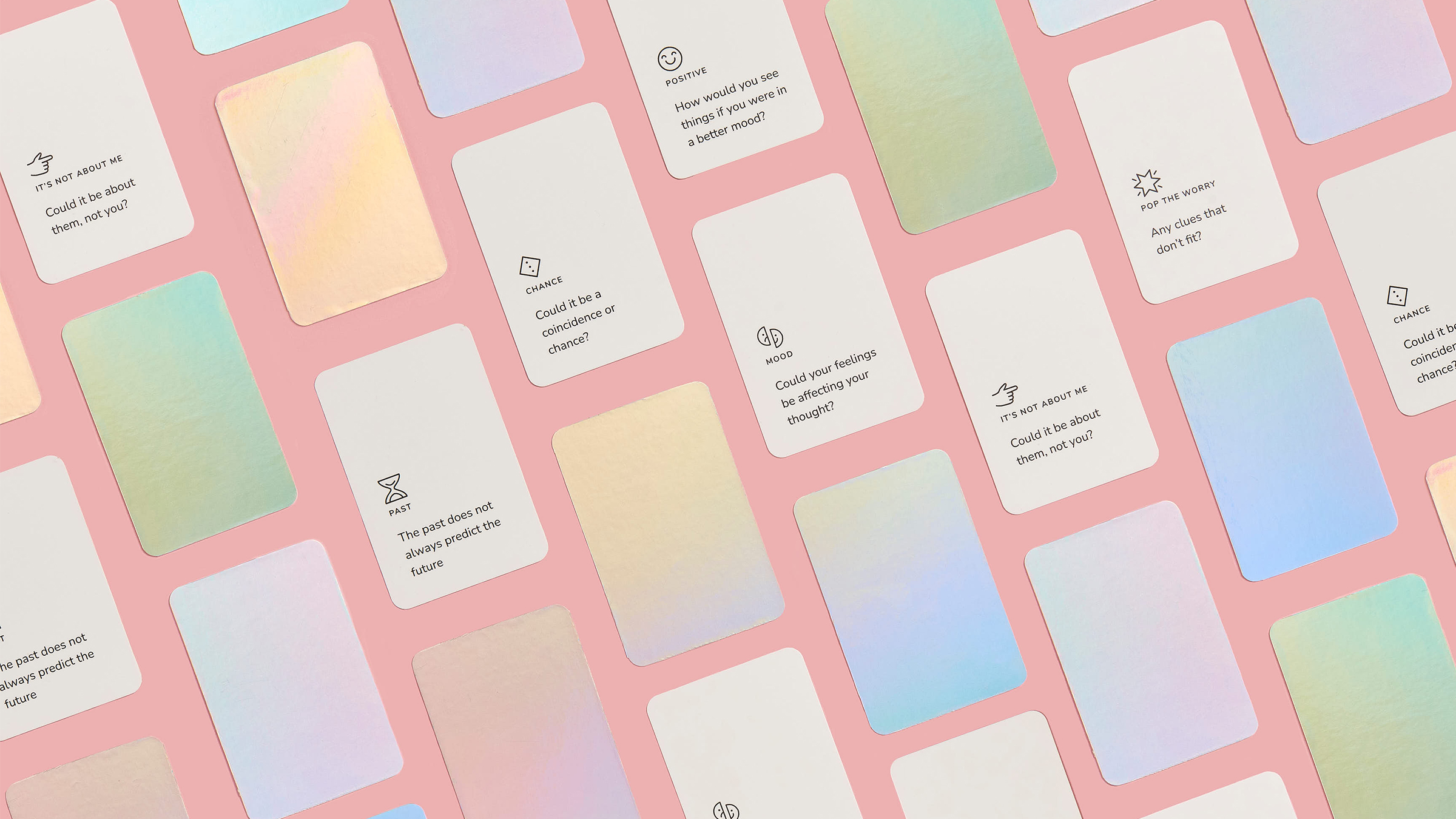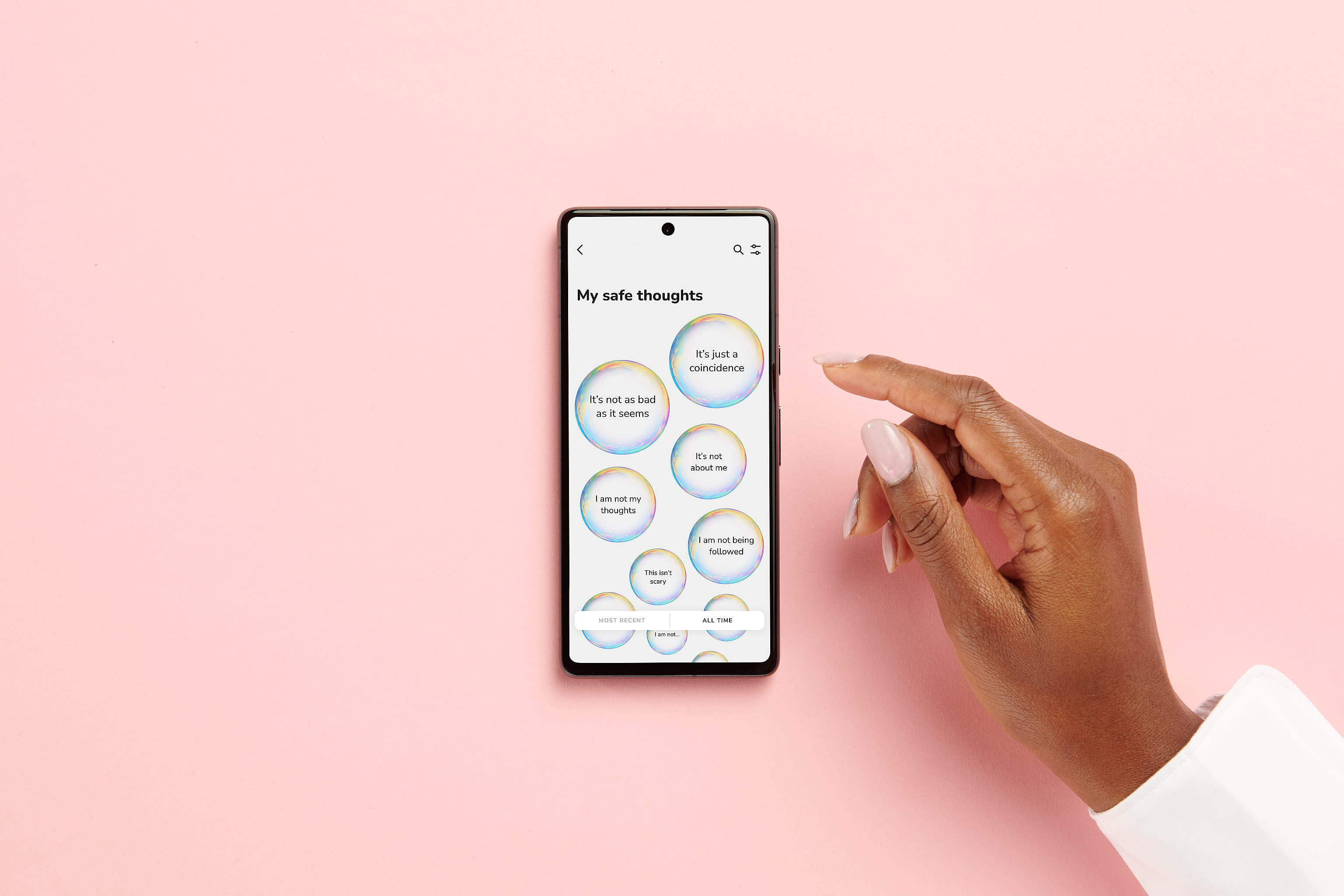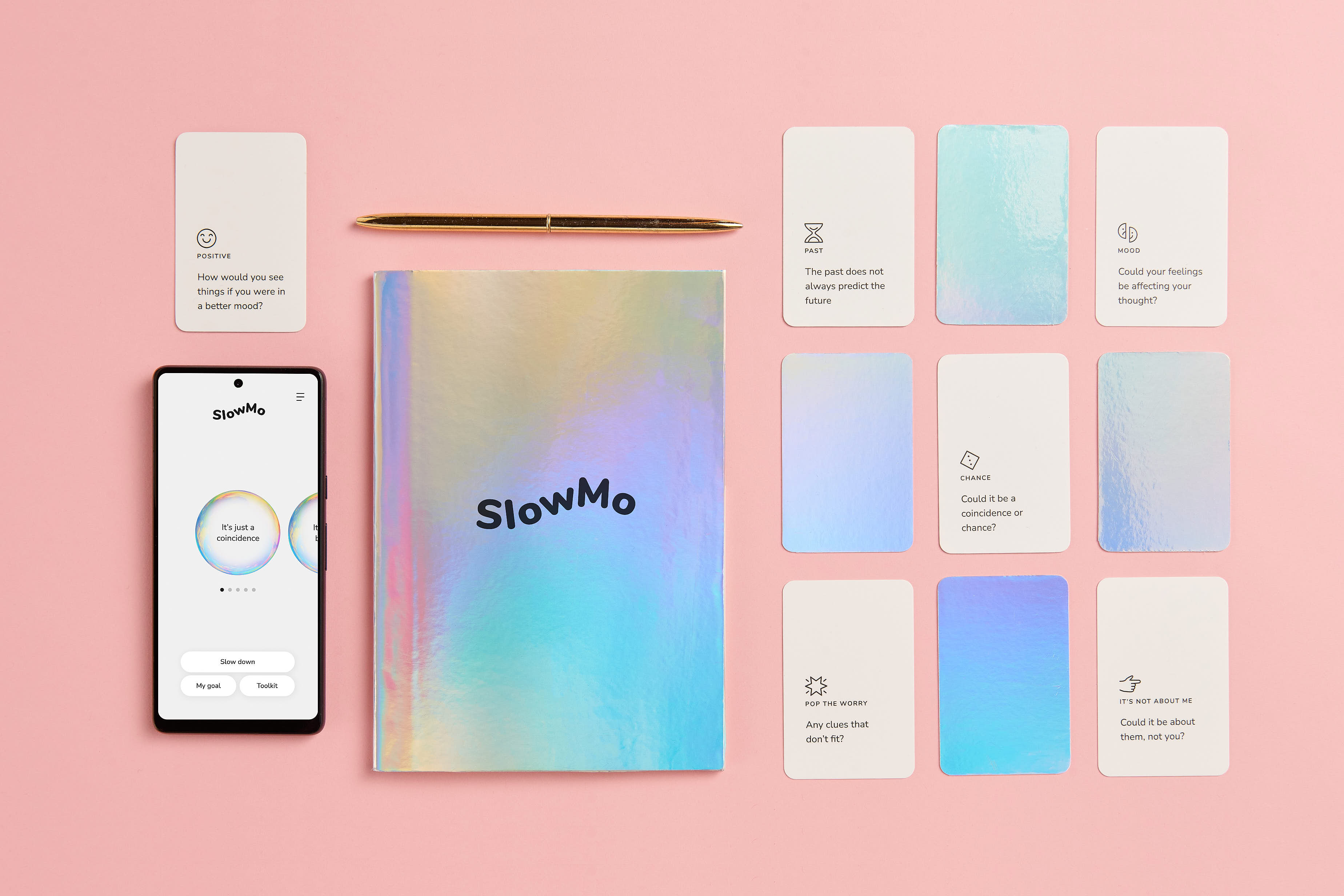SlowMo eases digital mental health therapy into daily life
SlowMo is a new mental health support app developed by design studio Special Projects and King’s College London that uses visual prompts to combat unhelpful thoughts

Receive our daily digest of inspiration, escapism and design stories from around the world direct to your inbox.
You are now subscribed
Your newsletter sign-up was successful
Want to add more newsletters?

Daily (Mon-Sun)
Daily Digest
Sign up for global news and reviews, a Wallpaper* take on architecture, design, art & culture, fashion & beauty, travel, tech, watches & jewellery and more.

Monthly, coming soon
The Rundown
A design-minded take on the world of style from Wallpaper* fashion features editor Jack Moss, from global runway shows to insider news and emerging trends.

Monthly, coming soon
The Design File
A closer look at the people and places shaping design, from inspiring interiors to exceptional products, in an expert edit by Wallpaper* global design director Hugo Macdonald.
SlowMo, a new mental health support app developed collaboratively by design studio Special Projects and King’s College London, uses visual prompts to combat unhelpful thoughts and aims to ‘humanise interactions with technology’.
To create SlowMo, designers at Special Projects united with an interdisciplinary team at the Institute of Psychiatry, Psychology and Neuroscience at King’s College London. The app uses visual prompts to support therapy for people with symptoms of psychosis, and has been granted £1.3 million by the charitable trust Wellcome to be scaled up for use in three NHS trusts.
Special Projects works with King’s College London on SlowMo
Special Projects is a self-proclaimed ‘innovation agency’, which seems a vague description for work that is, undoubtedly, extremely specific. Unravelling its wide and diverse portfolio exposes a plethora of creations. It has worked on an app that encourages people to take time away from their phones (by printing information they will need for the day); a collaboration with Google to improve AI’s user experience; and in SlowMo, it has found a way to visualise unhelpful thoughts, allowing them to be challenged more easily.
Intended to be used alongside therapy sessions, the app’s design is minimal and visually calming, allowing users to access it in the more heightened moments of a mental health crisis. Using bubbles and simple animations, it prompts users to scale the severity of their thought, assess its accuracy, and check in on the speed of their thinking.

The toolkit collated by SlowMo comprises tips for staying calm, goal logging, and grounding techniques, all of which relate to the user’s daily activities. This information is then stored in their device, ready to be shared with a therapist at a time of their choosing. There are also physical prompt cards that reflect similar activities, without the need for a phone.
‘We aimed to create a brand that patients enjoy interacting with to build a nourishing habit, instead of an anxiety-inducing chore,’ says Adrian Westaway, co-founder and director of technology and magic at Special Projects.

Throughout the process of creating the app, the team at Special Projects needed to learn how to bridge a gap between on-screen and real-life experiences, and a way to ‘humanise interactions with technology’ was key to the process, explains Westaway. In creating this bridge, the app encourages therapeutic processes to become nestled into people’s behaviours, and in time occur independently of the technology. Integrating physical prompt cards into the programme aids the transition from app to reality.
Receive our daily digest of inspiration, escapism and design stories from around the world direct to your inbox.
SlowMo’s inclination towards maintaining user autonomy is a key element of the app, while its goal to offer increasing independence to those it works with is a refreshing demonstration of design for a better world, and suggests technology as a building block towards authentically connecting with reality.
Martha Elliott is the Junior Digital News Editor at Wallpaper*. After graduating from university she worked in arts-based behavioural therapy, then embarked on a career in journalism, joining Wallpaper* at the start of 2022. She reports on art, design and architecture, as well as covering regular news stories across all channels.